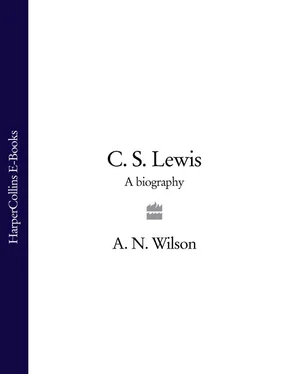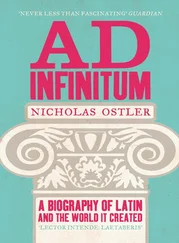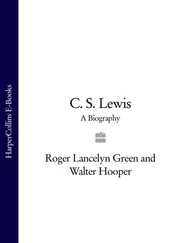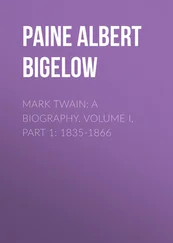A. Wilson - C. S. Lewis - A Biography
Здесь есть возможность читать онлайн «A. Wilson - C. S. Lewis - A Biography» — ознакомительный отрывок электронной книги совершенно бесплатно, а после прочтения отрывка купить полную версию. В некоторых случаях можно слушать аудио, скачать через торрент в формате fb2 и присутствует краткое содержание. Жанр: unrecognised, на английском языке. Описание произведения, (предисловие) а так же отзывы посетителей доступны на портале библиотеки ЛибКат.
- Название:C. S. Lewis: A Biography
- Автор:
- Жанр:
- Год:неизвестен
- ISBN:нет данных
- Рейтинг книги:5 / 5. Голосов: 1
-
Избранное:Добавить в избранное
- Отзывы:
-
Ваша оценка:
- 100
- 1
- 2
- 3
- 4
- 5
C. S. Lewis: A Biography: краткое содержание, описание и аннотация
Предлагаем к чтению аннотацию, описание, краткое содержание или предисловие (зависит от того, что написал сам автор книги «C. S. Lewis: A Biography»). Если вы не нашли необходимую информацию о книге — напишите в комментариях, мы постараемся отыскать её.
C. S. Lewis: A Biography — читать онлайн ознакомительный отрывок
Ниже представлен текст книги, разбитый по страницам. Система сохранения места последней прочитанной страницы, позволяет с удобством читать онлайн бесплатно книгу «C. S. Lewis: A Biography», без необходимости каждый раз заново искать на чём Вы остановились. Поставьте закладку, и сможете в любой момент перейти на страницу, на которой закончили чтение.
Интервал:
Закладка:
Some of the quarrels had to do with the holdings of Lewis manuscripts. Walter Hooper, an American resident in Oxford, was anxious that a complete Lewis collection, either in original manuscript form or on microfiche, should be available to scholars in the Bodleian Library. The late Clyde S. Kilby, who was largely responsible for building up the Lewis collection at Wheaton, agreed to a proposal that there should be a free exchange between Wheaton and the Bodleian until a dispute arose about some letters. ‘Then all smiles stopped together.’
Walter Hooper, who has had the task of editing most of Lewis’s posthumous works and working directly with Lewis’s estate and publishers, has come in for the brunt of criticism from his fellow-countrymen back across the water, but over the years it has become clear that the quarrels are not merely about Hooper’s own role in Lewis’s life or about the ownership of various bits of paper. Two totally different Lewises are being revered by the faithful, and it is this which makes the disputes so painfully acrimonious. Hooper was for many years an extreme Anglo-Catholic priest, but has subsequently become a Roman Catholic. He presides over weekly meetings of the C. S. Lewis Society in Oxford where papers are read and discussions held by interested parties, mainly students. It is not an exclusively High Church group, but there is a distinctly Catholic bias in Hooper’s interpretation of Lewis which not everyone who knew the man would find completely believable. Most noticeably peculiar in Hooper’s picture of his hero is his belief in the Perpetual Virginity of C. S. Lewis. There is very direct evidence, both from Lewis’s brother-in-law Dr Davidman and from Lewis’s own pen, that Lewis was not a virgin and that his marriage was consummated. It would also be amazing, though no evidence is forthcoming either way, if Lewis’s thirty-year relationship with Mrs Moore was entirely asexual. Ordinary biographical criteria, however, are not allowed by Hooper to apply, since for him Lewis has become a sort of Catholic saint, and one can hardly believe in a Catholic saint both of whose sexual relationships were with women who had husbands still living. Therefore, when Lewis wrote in A Grief Observed that he and his wife were lovers, that they had ‘fallen in love’, that ‘a noble hunger, long unsatisfied, met at last its proper food’, that she was his ‘mistress’, that ‘we were one flesh’, that ‘no cranny of heart or body remained unsatisfied’, he was in fact writing a work of fiction. Hooper has a natural bent for hero-worship, and because he believes celibacy to be a high virtue he cannot believe that Lewis and his wife were, as the man himself wrote, ‘a sinful woman married to a sinful man’.
In the United States, among Lewis’s Protestant devotees, there is an analogous awkwardness about his passion for alcohol and tobacco. Some of Lewis’s American publishers actually ask for references to drinking and smoking to be removed from his work, and one has the strong feeling that this is not so much because they themselves disapprove of the activities as because they need a Lewis who was, against all evidence, a non-smoker and a lemonade-drinker.
It is the need which awakens the image, and once the image has been set up and revered, and emotion has been poured into it, there is something profoundly painful about the idea of anyone worshipping a different icon, or threatening to demolish all the icons. Lewis idolatry, like Christianity itself, has resorted to some ugly tactics as it breaks itself into factions. Hard words are used on both sides, and there is not much evidence of Christian charity when the war is at its hottest. In their libraries and periodicals, the differing Lewis factions have conceived for one another an enmity which would do Screwtape proud, and it provides a strange parallel to the sort of unhinged sectarian disputes which have dogged Lewis’s native Belfast for the last sixty years.
When we step beyond the wardrobe door, we expect battles. Witches and monsters will threaten our subconscious until we reach the longed-for consummation when change itself stands still and Aslan is King for ever.
A writer who can evoke such reactions is worthy of scrutiny, and scrutiny of a particular kind. When I had seen Belfast and Wheaton, I saw the extent of the problem facing Lewis’s biographer. Some time before, staying in the south of France with Christopher Tolkien, the son of J. R. R. Tolkien, I took down from the shelf a copy of Lewis’s book Letters to Malcolm, Chiefly on Prayer . Here was evidence, if any was needed, of how one of Lewis’s closest friends reacted to his last work of piety. The book is not ‘about prayer’, Tolkien writes in the margin, ‘but about Lewis praying’. ‘But’, he adds on the flyleaf, ‘the whole book is always interesting . Why? Because it is about Jack, by Jack, and that is a topic that no one who knew him well could fail to find interesting even when exasperating.’
I myself never knew Lewis, though I have known many people who did, and I have never failed to find their memories of the man interesting. Like Tolkien, I am puzzled. Why? In the same marginal note, Tolkien continues, ‘The book is in fact entirely egocentric , by which I do not mean that C.S.L. worshipped himself or was a proud or vain man, overesteeming his own worth or wisdom. But I do mean that as must be the case with anyone who essays autobiography, under any form, he found C.S.L. an absorbing topic.’
Lewis was in fact an obsessive autobiographer. Most of his later books are, as Tolkien says, all about himself, and he also wrote copiously on the subject to his many correspondents. Yet few writers have ever been less introspective: this is the paradox. He was not vain, but he had a capacity to project images of himself into prose; sometimes, one feels, without quite realizing what he was doing. It is these images which have such posthumous staying power. For me, the most attractive Lewis is the author of English Literature in the Sixteenth Century , a fluent, highly intelligent man talking about books in a manner which is always engaging. This itself is a self-projection. Reading the book, you feel you know what it was like to hear him talk. This is ten times truer of his religious books, and since many readers will associate Lewis’s tone of voice with some of their deepest and most profoundly felt religious moments, there is no wonder that they guard their images of him jealously.
Lewis himself, in his own words that ‘sinful man’, wrote in his most devastatingly personal book A Grief Observed that ‘All reality is iconoclastic. The earthly beloved, even in this life, incessantly triumphs over your mere idea of her. And you want her to; you want her with all her resistances, all her faults, all her unexpectedness. That is, in her foursquare and independent reality. And this, not any image or memory, is what we are to love still, after she is dead.’
This book is not intended to be iconoclastic, but I will try to be realistic, not only because reality is more interesting than fantasy, but also because we do Lewis no honour to make him into a plaster saint. And he deserves our honour.
–ONE– ANTECEDENTS
Clive Staples Lewis was born on 29 November 1898 in the city of Belfast. More than most men, he was the product of his upbringing and ancestry. Throughout his adult life he remained constantly preoccupied with his own childhood. Moreover the companion of his infancy, Warren Hamilton Lewis, his elder brother by three years, lived with him for the greater part of his life. Their comradeship outlasted the vicissitudes of love and friendship.
But C. S. Lewis did more than carry the memories of his childhood in Northern Ireland into grown-up life. Many of his most robustly distinctive qualities were manifestly ones of inheritance.
Читать дальшеИнтервал:
Закладка:
Похожие книги на «C. S. Lewis: A Biography»
Представляем Вашему вниманию похожие книги на «C. S. Lewis: A Biography» списком для выбора. Мы отобрали схожую по названию и смыслу литературу в надежде предоставить читателям больше вариантов отыскать новые, интересные, ещё непрочитанные произведения.
Обсуждение, отзывы о книге «C. S. Lewis: A Biography» и просто собственные мнения читателей. Оставьте ваши комментарии, напишите, что Вы думаете о произведении, его смысле или главных героях. Укажите что конкретно понравилось, а что нет, и почему Вы так считаете.












